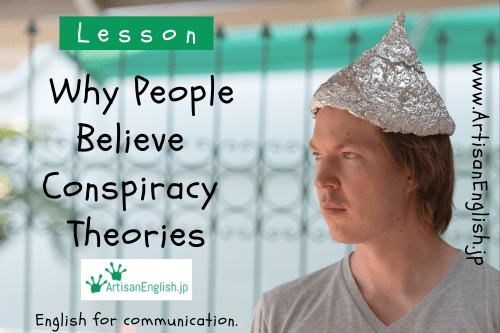
Lesson: Why People Believe Conspiracy Theories
The 2020 US presidential election was stolen! They stole it! That’s a conspiracy theory people will believe if you say it loud enough and long enough. But why? Why do people believe conspiracy theories? Well, there are various reasons. One common factor is a growing lack of trust in government and other authoritative institutions. When people feel they are not being told the whole truth or information is being manipulated, they may turn to conspiracy theories to make sense of the world around them. People like to be in control of chaotic situations, which may drive them to conspiracy theories. Believing in a conspiracy theory can make events seem more predictable and understandable, even if the explanation is far-fetched. Furthermore, social and cognitive factors such as the need for belonging to a community, cognitive biases, and the allure of secret knowledge can also contribute to the appeal of conspiracy theories. Overall, the complexity of the modern world, combined with individual psychological and social factors, can lead people to believe in conspiracy theories to make sense of what they perceive as uncertain or untrustworthy information.
YouTube / iTunes / Spotify / Radio Public / Pocket Casts / Google Podcasts / Breaker / Overcast
Listen to ArtisanEnglish.jp posts & lesson intros here.
Example Article
Each conversation topic is based on a theme. In order to help students acquire a basic understanding of that topic, four media articles are provided for them to read. I will never test you on the articles, but I strongly suggest you book lessons far enough in advance to give yourself enough time to properly prepare. The better prepared you are, the more benefit you will receive from our conversations.
Below is an example article for this conversation topic.

